When exercising at home or at a gym, you need particular equipment to maximise your results. This covers footwear, apparel, accessories, and, surprisingly, food. With the right amount of protein, carbs, and fat provides energy, assists in muscle repair, and keeps hunger at bay. These 10 healthy snacks have been put together to assist you in attaining your fitness goals and help you get the most out of your exercise.
Dairy Products with a Low Fat Content
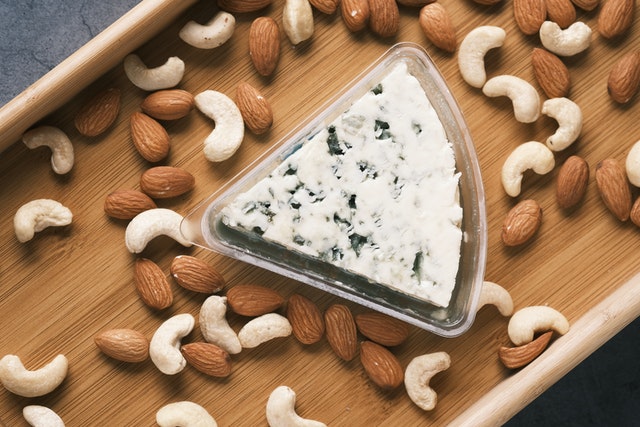
Greek yoghurt and cottage cheese, for example, are both rich in protein and low in fat, making them excellent pre-workout snacks. Cottage cheese offers 25 grams of protein per cup, but Greek yoghurt has 17 grams of protein. Vitamins and minerals such as calcium, selenium, and vitamin B are included in both diets. These nutrients are important for bone and muscle health and recovery.
Greek yoghurt with low fat may be mixed with fresh or dried fruit. Sliced avocado may also be added to cottage cheese spread over whole-grain toast or crackers.
Smoothies with Fruit
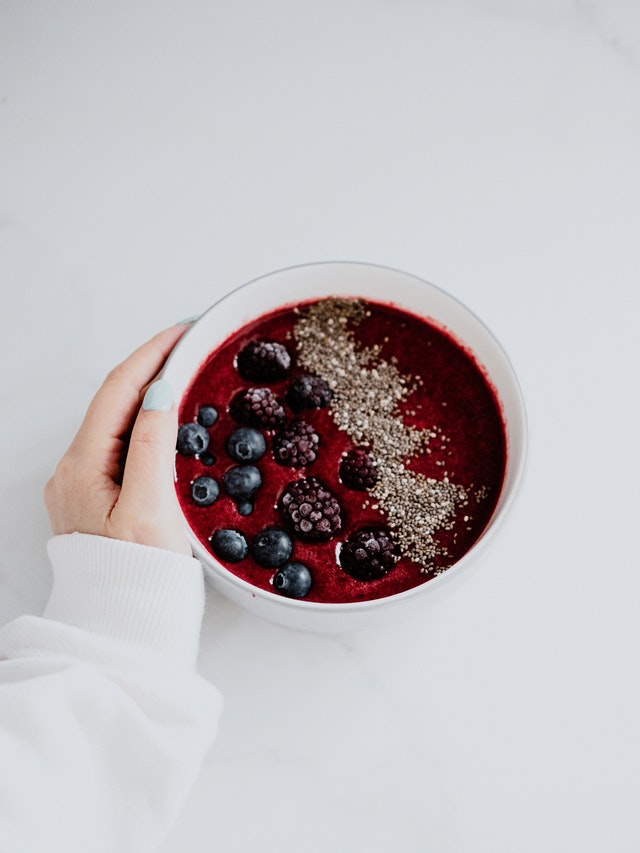
Dietary fibre, which is abundant in fruits like oranges, bananas, apples, and pears, offers a steady supply of energy for the body and helps to curb hunger. When mixed with high-protein foods like Greek yoghurt, almond milk, or peanut butter, these fruits make an excellent protein shake that’s both nutritious and delicious!
Whole Wheat
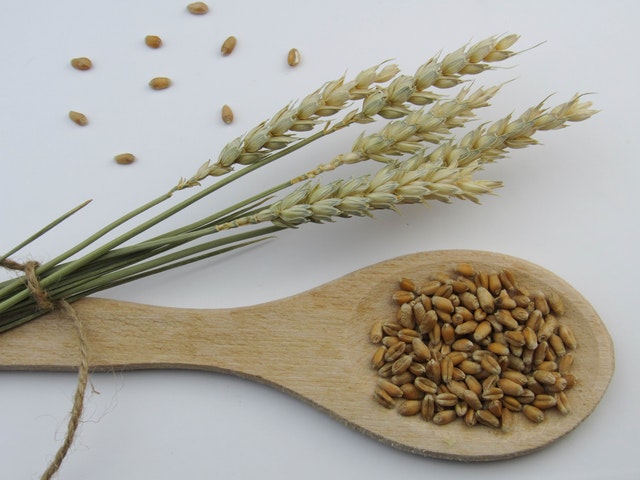
Fueling the body requires carbohydrates. Whole grains like steel-cut oats, brown rice, and quinoa, which include complex carbs, have a lower glycemic index. As a result, they won’t induce a surge in blood sugar and subsequently a sudden drop. When you eat whole grains before a workout, you get a steady supply of energy that lasts longer than when you eat refined carbs. As a result, you’ll be able to work out for longer periods of time without feeling exhausted. These meals also help you feel satiated for a longer time.
Before working out, couple whole grain bread, crackers, and rice cakes with protein sources such as a hard-boiled egg or hummus. The USDA recommends 3 to 12 grammes of carbs per kilogramme of body weight per day for athletes. Remember that whole-grain carbohydrates are more advantageous than simple carbs, such as white flour, since they include more nutrients and fibre. Carbs that are high in complex carbohydrates give a steady supply of energy.
Proteins That Keep You Trim
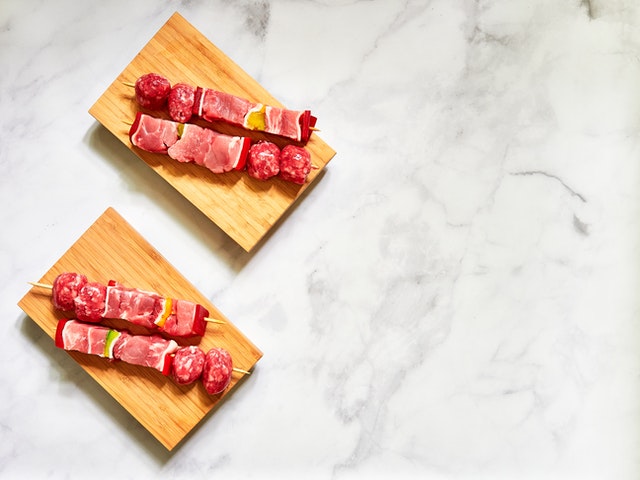
Building muscular tissue, building blood, cartilage, and bone health all depend on protein. Strength training-induced muscle fibre rips may be repaired by protein consumption before working out. Muscle development is aided by a high-protein snack if your objective is to gain muscle mass. Protein intake for most individuals should be about 0.8 grammes per day. In contrast, the American College of Sports Medicine recommends 1.2 to 2 grammes of protein per day for athletes.
Choosing lean meats like chicken and turkey as a source of protein is a healthy option since they are lower in fat and calories. Fish Omega-3 fatty acids, which decrease blood pressure and prevent heart disease, may also be found in fish, such as tuna and salmon, and almonds. If you don’t consume meat, beans, nuts, peanuts, soy milk, and leafy greens are wonderful vegetarian protein sources. Eggs are a complete protein because they include all nine essential amino acids, whether they are scrambled or hard-boiled.
Bananas

Snacks high in both protein and carbs are ideal before a workout. Bananas include both, making them a convenient pre-workout snack to grab and go. There are 27 grammes of carbs and 1.3 grams of protein in a medium-sized banana. Potassium helps to maintain nerve function and reduces muscle cramping caused by overuse.
Bananas and almond or peanut butter make a great pre-workout snack. The heart-healthy lipids omega 3 fatty acids are abundant in these spreads. You may also try our baked oats with strawberry bananas.
Roasted Potatoes
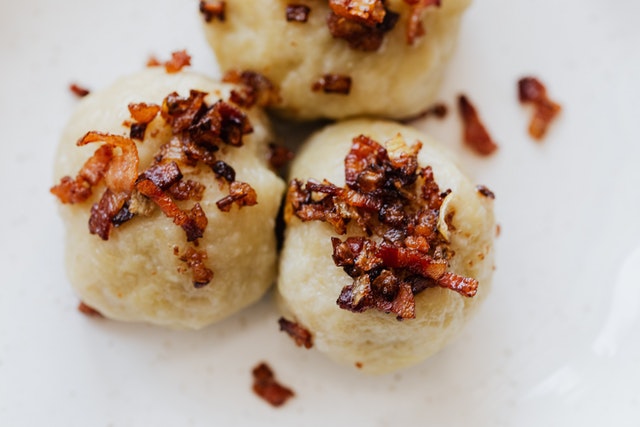
Sweet potatoes, like bananas, are an excellent source of both carbohydrates and protein. Sweet potatoes, on the other hand, are rich in antioxidants, including vitamins C and A, which boost immunity, eliminate toxins, and reduce inflammation. Swelling may be reduced and healing times shortened for people who are physically engaged.
Eat your sweet potato spread over whole-grain toast or crackers for a fast, healthy snack.
Fruits that Have Been Dried
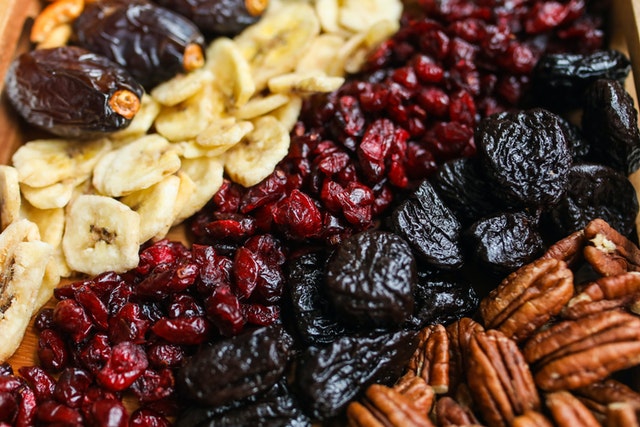
Dry fruit has the same complex carbs and fibre as fresh fruit, which will keep you satisfied and energetic throughout your exercise. Polyphenols, which are antioxidants found in many fruits, are also present. As a result of the pollutants in our air, water, and food supply, antioxidants help digestion, blood flow, and cell damage. When exercising, blood sugar levels might drop, and dried fruit’s natural sugars help refill them.
With Greek yoghurt or cottage cheese, dried fruit is excellent.
Trail mix
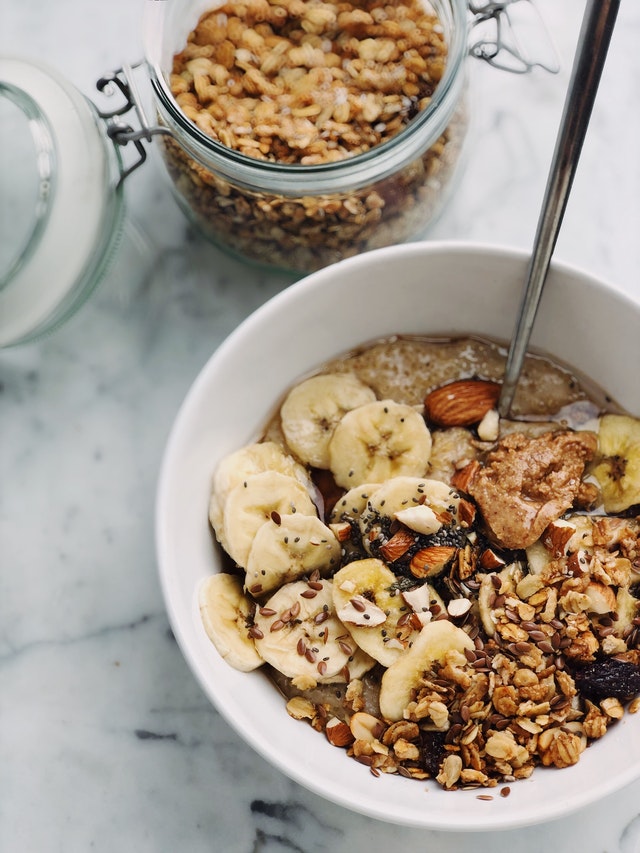
As an excellent source of protein for muscle regeneration and blood flow, nuts and seeds are highly recommended. Omega 3 fatty acids and heart-healthy fats, which decrease cholesterol levels and blood pressure, are also found in these foods.
Almonds, walnuts, and sunflower seeds make a delightful trail mix when combined with your favourite dried fruit. It’s easier to consume the correct quantity of trail mix when you portion it out into to-go bags.
Legumes

Protein and complex carbs are found in legumes, such as chickpeas, beans, and lentils, much like bananas. Small amounts of these meals may provide long-lasting, slow-releasing energy that reduces dizziness and curbs appetite before an exercise.
Whole-grain crackers or lean meat sandwiched between two slices of whole wheat bread are ideal accompaniments to chickpea hummus.
Oats

Oatmeal is an excellent pre-workout fuel source since it lasts all day. The key is to choose oats that have had the least amount of processing, such as steel-cut. These oats have higher fiber content and are thus better for you.
Fresh or dried fruit may be added to your oatmeal to increase the amount of fiber in your diet. In addition, the fruit’s natural carbohydrates help you get moving in the morning by boosting your blood sugar levels.
What to Eat Before a Workout
If you want to keep your energy levels up and get through a tough workout, you need to eat snacks that are high in complex carbs, protein, and heart-healthy fats. In order to assist you in choosing the ideal pre-workout snacks, we explain how each of these nutrients affects your exercise.
Carbohydrates
White sugar, for example, is a fast-digesting carbohydrate that provides a burst of energy. As a result, our energy levels plummet shortly after consuming these carbohydrates. Carbohydrates with more complex structures have a different effect on the body than those with simpler structures. As a result of their delayed digestion, whole grains give a consistent supply of sugar to circulation. During strenuous activity, these meals may provide you with sustained energy levels for extended periods of time.
Protein
Muscle repair and development can only occur if the body has enough protein. We’ve compiled a list of the top pre-workout protein sources below.
- Low-fat meats like turkey and chicken are included.
- Eggs, cottage cheese, and yogurt are all dairy products.
- Nuts, beans, legumes, seeds, and leafy greens all provide plant-based protein.
Fats
In order to maintain a steady supply of energy throughout the day, fat is essential. However, not all fats are good for us. To minimise sluggishness and lethargy when exercising, it is preferable to avoid meals high in saturated fats, such as cheese, butter, and red meat. The monounsaturated and polyunsaturated fatty acids found in avocados, salmon, nuts, and olive oil are particularly beneficial to the heart because they lower inflammation and edema. They may also be found in small amounts in other foods.
Timing
Before exercise, a heavy lunch might lead to stomach bloating and discomfort. Consume at least two to three hours before exercise if you intend to eat a substantial meal. While it’s OK to consume a modest snack 45 to 60 minutes before working out, a full meal isn’t necessary. Eat small, easily digested meals that provide a good balance of nutrients.
Frequently Asked Questions
Is it OK to consume coffee before working out?
Drinking a cup of coffee before a workout is perfectly OK. Reduced weariness and increased strength are two of the advantages of caffeine. Coffee should be consumed at least 90 minutes before exercising to allow the caffeine to be metabolised.
The answer to this age-old question is: it depends.
In the morning, exercising burns fat and speeds up the body’s metabolic rate. The increase in metabolism that occurs during the day might help with digestion. Exercise late at night, on the other hand, may raise levels of the feel-good hormone endorphin, which can keep the brain and body awake and stimulated.
In terms of calorie content, what is the ideal pre-workout snack?
There should be between 150 and 200 calories in a pre-workout snack. Snacks containing 100 calories or fewer are best for weight loss.
Pre-workout snacks aren’t always essential.
You may not be able to complete the full exercise if you don’t provide your body with the proper nutrition before you begin. It’s also possible that you’ll feel hungry while exercising, which might lead to dizziness and nausea.
During exercise, what kinds of foods should you avoid eating?
Prior to an exercise, you should refrain from consuming simple carbs, such as meals containing processed white sugar. This may lead to a sudden surge in energy, followed by a sudden drop in energy levels when exercising. Saturated fats, such as those found in cheese and red meat, are also more difficult to break down and induce sluggishness in the digestive system.
Conclusion
You can get through a workout and recover quickly if you have a healthy snack. You may mix and match any of the components listed above to create snacks that fit your preferences. As well as providing your body with the energy it needs, a healthy snack should also taste good.
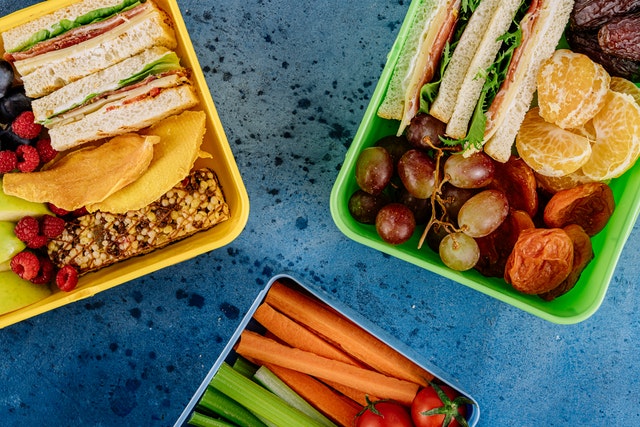
Pingback: Before a Workout, Should I Have a Cup of Coffee? - Healthy Beats